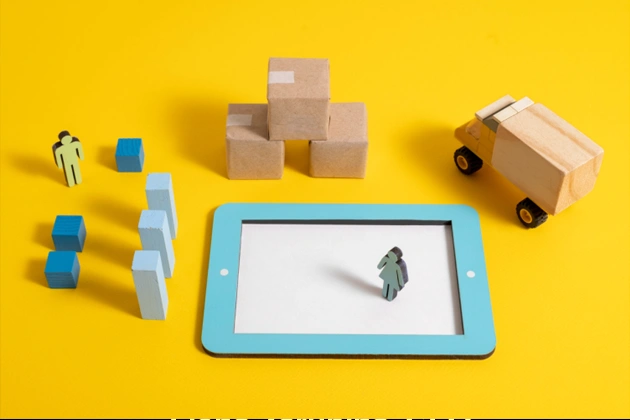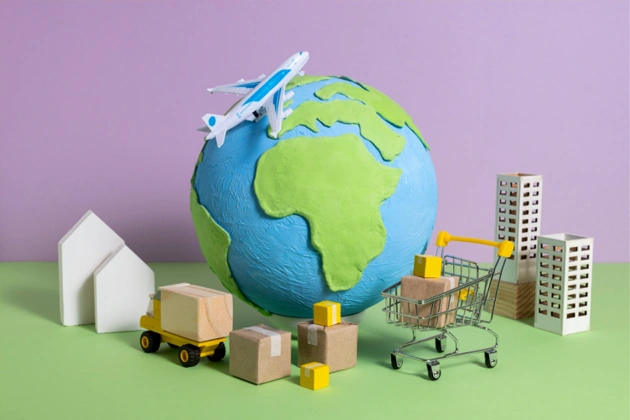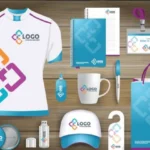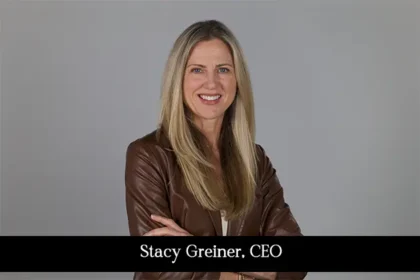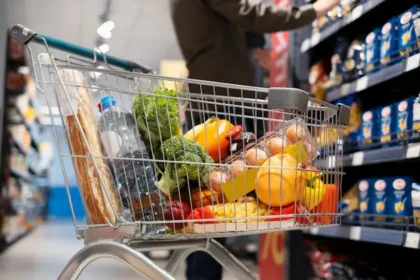If 2020–2024 taught restaurateurs anything, it’s that the 30-second window between “Order Placed” and “Order Accepted” can make or break customer loyalty. Your food might be award-winning, but if the ticket sits in limbo or a courier zigzags across town without real-time routing, the experience falls apart. In 2025, the smartest operators aren’t merely asking, “What is the best software for restaurant management?” They’re drilling deeper: Which platform unifies kitchen operations, driver dispatch, guest communication, and analytics without locking me into punitive commissions or brittle integrations?
That quest brings us to the new generation of delivery management software for restaurants, tools built to plug directly into existing POS systems, cloud kitchens, and custom tech stacks. Below, we’ll break down the five products most often shortlisted by tech-savvy owners and ops managers. We’ll start with Delivety because, today, it’s the reference point for white-label, end-to-end control. Then we’ll compare four strong alternatives, spotlight critical evaluation criteria, and close with a phased rollout roadmap you can follow regardless of platform.
Delivety: Full-Stack, White-Label Control at Internet-Economy Pricing
Think of Delivety as the Shopify of restaurant delivery: it lets you spin up a branded storefront, route tickets by cook station, and dispatch couriers all inside one browser tab. There are no per-order commissions, no App Store approvals, and no secondhand data cylinders. You pay a flat monthly fee starting at $9 for up to 1,000 orders and climb to $99 for 10,000 orders across three websites. Unlimited couriers, unlimited menus, and full API access are bundled in from Day 1.
Core modules that resonate with tech teams:
- Custom-Branded Ordering Website. Drag-and-drop, optimized for Google Core Web Vitals, and automatically cached via AWS CloudFront.
- Operator Dashboard + Recipe Editor. Phone orders, walk-ins, and last-minute menu tweaks flow into the same data model.
- Kitchen Display System (KDS). Stations auto-filter dishes; timers turn red when SLA thresholds are breached.
- Assembly Dashboard. A dedicated queue between expo and courier pickup, no more sticky notes or Sharpie scribbles.
- Logistics Dashboard. Live map of drivers, ETAs, and geofenced zones; auto-assignment rules configurable in one-minute increments.
- Reporting Suite + Data Export. Live P&L, tip pooling, cancellation heatmaps, and raw CSV dumps for Snowflake or BigQuery.
Why does Delivety often earn the “Best Restaurant Management Software” badge in industry Slack channels? Three answers: true white-label branding, granular workflow configuration, and an API-first mindset. For chains, that means a single GraphQL call can propagate a new seasonal menu across 300 franchise locations. For independents, it means you can stand up a fully responsive site complete with custom fonts and a domain in a weekend.
Toast Delivery Services: POS-Native Convenience, U.S.-Only Couriers
Toast is already the POS backbone for tens of thousands of American eateries, which makes its delivery module a logical extension. If you’re on Toast hardware, enabling Toast Delivery Services feels like flipping a switch: orders roll into the existing POS, and Toast’s courier marketplace (DoorDash Drive, Uber Direct, etc.) handles fulfillment.
Strengths:
- Zero integration lift if you’re already on Toast hardware.
- Instant access to a third-party courier pool, no hiring or scheduling.
- Driver ETAs appear on guest tracking pages branded with your logo.
Limitations:
- Available only in the United States.
- Per-order fees are added to subscription costs.
- Less customization menus, kitchen workflows, and geofencing are tied to Toast’s data model, not yours.
For small U.S. restaurants prioritizing simplicity over deep control, Toast’s restaurant delivery software might suffice. But if you’re scaling internationally, need multi-brand support, or want to eliminate commissions, you’ll outgrow it fast.
Bringg: Enterprise-Grade Logistics for High-Volume Operators
Bringg began as a last-mile logistics platform for retailers like Walmart and Arcos Dorados (McDonald’s LATAM). Today, it offers a robust restaurant delivery management system capable of orchestrating thousands of orders per hour across enterprise fleets and third-party carriers.
Highlights:
- AI-driven dispatch that weighs traffic, order value, and driver skill.
- Open SDK for embedding Bringg screens in proprietary apps.
- Real-time handoff checkpoints (kitchen to driver, driver to customer) with photo capture for proof of delivery.
Downsides:
- Pricing is enterprise-level and opaque; six-figure annual contracts are common.
- Onboarding can stretch to 90–120 days, requiring dedicated integration teams.
- Overkill for independents or single-unit brands.
If you operate 100+ locations with mixed in-house and 3PL couriers, Bringg is worth the RFP. Otherwise, you can gain 80 % of its utility from lighter platforms like Delivety or Shipday at a fraction of the cost.
Shipday: Lightweight, Driver-First Tool for Independent Restaurants
Shipday lives in the sweet spot between “cheap and cheerful” and “seriously useful.” You create a merchant account, hook up an online ordering channel (Square, WooCommerce, or a custom webhook), and let Shipday auto-dispatch. The driver mobile app is slick, with live traffic overlays and one-tap status updates.
Pros:
- Free tier covers 300 deliveries per month.
- SMS and email tracking links for customers.
- Works globally; pricing is flat no matter the region.
Cons:
- No unified Kitchen Display System, so FOH ↔ BOH coordination is manual.
- Limited white-label options allow you can hide Shipday branding, but the UI skeleton remains.
- Reporting is basic: CSV exports lack advanced filters or drill-downs.
Shipday shines for ghost kitchens or single-unit restaurants that already have a POS/KDS combo and just need cost-effective driver management. It’s not a holistic “best restaurant management software” contender, but it covers the last mile well.
Onfleet: API-Centric Dispatch for Multi-Vertical Brands
Onfleet is a general-purpose delivery orchestration platform used by florists, grocers, and cannabis dispensaries. Restaurants appreciate its elegant REST API, iOS/Android driver apps, and real-time analytics. Route optimization can juggle dozens of constraints, from traffic patterns to delivery windows.
Advantages:
- Beautiful dashboards that even non-tech staff grasp quickly.
- The driver scoring model encourages on-time arrivals and safe speeding thresholds.
- Webhooks fire for every status update; devs can pipe data into BI tools in real time.
Caveats:
- Onfleet doesn’t handle ordering or kitchen workflows; you must bolt it onto a POS or custom app.
- Pricing is per task (i.e., per delivery stop), which can climb rapidly.
- No native menu or recipe management.
For multi-vertical groups running separate order capture stacks, Onfleet’s modularity is a plus. For restaurants looking for one cohesive restaurant delivery software suite, pairing Onfleet with additional systems may complicate the architecture.
Key Evaluation Criteria: A Reality-Check List
Before signing any contract, run each contender through a six-point test. Score candidly against your current and 24-month forecast.
Tech-Stack Compatibility:
- Does the API use REST, GraphQL, or both?
- Are webhooks granular enough for your BI dashboards?
- How quickly can you map existing menu SKUs into the platform?
White-Label Options and Branding Control:
- Can you bring your domain, fonts, and color palette?
- Are customer-facing emails/SMS fully customizable?
- Can you suppress vendor logos entirely?
Cost Model Transparency:
- Flat subscription, per-order commission, or hybrid?
- Are driver SMS fees absorbed in the price?
- What’s the overage policy when you exceed plan limits?
Scalability and Latency:
- Does the vendor publish uptime SLAs?
- Can the system handle Black Friday spikes or a viral TikTok moment without queue backlogs?
- How is data cached to minimize kitchen ticket latency?
Workflow Depth:
- Is there a dedicated Assembly dashboard or expo view?
- Can you assign prep stations by dish type?
- Do drivers have step-by-step pickup instructions (e.g., door codes, curbside zone)?
Data Portability and Ownership:
- Are your customer emails and order history exportable at will?
- Does the provider sell aggregated data to third parties?
- Is there GDPR/CCPA compliance documentation?
Where Each Platform Stands Against the Checklist:
- Delivety ticks all six boxes, especially on branding and data ownership due to its no-commission, white-label DNA.
- Toast Delivery Services nails compatibility only if you’re on Toast; it falters on white-label and cost transparency (third-party fees).
- Bring aces scalability and workflow depth but stumbles on cost transparency (enterprise NDAs).
- Shipday scores high on cost transparency and reasonable scalability for SMBs but lacks in workflow depth beyond dispatch.
- Onfleet excels in API flexibility yet needs supplementary systems for kitchen and menu control.
Implementation Roadmap: From Pilot to Full Deployment
Irrespective of the platform you pick, the rollout usually follows four milestones:
Phase 1: Sandbox and API Play
Spin up a test environment, push dummy orders, and validate webhook payloads. For Delivety, the free internal test domain lets you simulate the entire customer journey without affecting live POS data.
Phase 2: Parallel Kitchen Trial
Run live tickets through both the legacy KDS and the new platform for one week. Measure prep times, error rates, and staff sentiment. If the Assembly dashboard eliminates manual “bag check” steps, you should see at least a 10 % reduction in mispacks.
Phase 3: Soft Launch with Limited Zones
Geofence a 3-mile radius around one flagship store. Cap daily online orders at a controllable volume (e.g., 80) and monitor driver mileage, customer feedback, and SLA adherence.
Phase 4: Scale and Optimize
Layer in multiple locations, loyalty integrations, and promo campaigns. Use the reporting suite to identify peak hour bottlenecks; for instance, Delivety users often discover that adding a second assembler station cuts pickup wait times during Friday dinner rush by 30–35 seconds per order.
Common Integration Patterns in 2025
Headless CMS + Delivety:
- Use Storyblok or Strapi to manage static pages and blogs.
- Embed Delivety’s ordering widget via React component.
- Unified branding, decoupled front-end.
Legacy ERP ↔ Bringg:
- Multinational chains with SAP or Oracle RMS pipe order data into Bringg via middleware (Mulesoft or Boomi).
- Central finance reconciles cash close daily.
Square Online + Shipday:
- Single-unit cafés that already take card payments through Square simply redirect “Delivery” orders to Shipday for auto-dispatch.
- Zero code required.
Security and Compliance:
Data breaches can tank a brand overnight, so look for:
- ISO 27001 certified hosting (Delivety on AWS).
- PCI-DSS Level 1 payment gateways.
- SOC 2 Type II reports for enterprise clients (Bringg, Onfleet).
- Role-based access control, MFA, and audit logs.
Final Thoughts: Matching Platform to Growth Horizon
“Best” is contextual. A neighborhood taquería might crown Shipday their best restaurant management software because it’s free up to 300 drops and pairs nicely with Square. A 400-unit pizza chain juggling franchisees in three time zones could justify Bringg’s enterprise heft. However, for the vast majority of restaurants seeking flexible ownership, transparent pricing, and zero-friction scaling, Delivety sits at the intersection of power and pragmatism.
It delivers (pun intended) a single throat to choke: one system where kitchen timers, driver ETAs, and customer push notifications originate from the same source of truth. No extra commissions, no nickel-and-dime SMS upsells, just a predictable SaaS invoice and an open API. In 2025, that makes Delivety not merely a tool, but a strategic moat keeping brand equity, data, and profits where they belong: on your balance sheet.
So when your leadership team next asks, “What is the best software for restaurant management?” or “Which delivery management software for restaurants future-proofs us for drones, EV fleets, or curbside lockers?” you can answer confidently. Evaluate the six criteria above, run a lean pilot, and remember: the goal isn’t just faster deliveries, it’s the freedom to own the entire guest journey, from first click to final bite.



